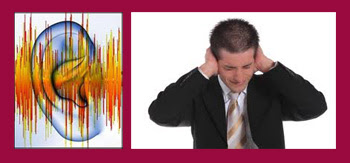Additional recommendations about: Accommodations - 2/3
Continued list about Accommodations to be considered when hyperacusis and tinnitus arise:
7. The most ideal heat in home is hot water heat. It is the quietest and no fans are running. Forced air may be tolerable as long as the bedroom is not located near or directly above the furnace. Heat pumps are offensive and often make banging noises. Window air conditioners are also a problem. Central air conditioners are by far the best but keep the fan rpm's (revolutions per minute) at a moderate range.
8. Also, try to fine tune your door closures so they close quietly. Be careful on windy days. Door closures are the worst maintained part of any public building. Many buildings have doors, which screech when they open and bang when they close. It is a good idea to always open a public entrance door slowly and keep your hand on it until it closes to prevent any surprises (remember - dynamic range!).
9. Many of us have difficulty riding in a car, bus, train, and especially an airplane. Road noise entering the car is hard, particularly if the windows are open. It is worse when it is a windy day. Sometimes closing the window on the drivers' side, opening a window on the passenger side, and driving in the far right lane of traffic may help. If you are the owner of a car, electric windows are a must so that you can control the noise entering the car. Learn to be a control person (with noise that is).
10. When car alarms go off we are either running or making a quick departure with our fingers in our ears. The chime or bell ringer on newer cars for signaling ignition start up and seat belts should be removed no matter what your mechanic tells you about safety standards. Although some dealerships may refuse to remove this, they can tell you where it is located and it is relatively simple to unplug it yourself. If your condition is explained to them or you show them this supplement - most will take it out for you. Some dealerships have even called The Hyperacusis Network to ask if this sound sensitive customer is 'for real' before disconnecting some of this safety equipment. They may still insist on you signing a waiver to free the dealer from any liability, but in many instances it is well worth it.
11. Whenever we are indoors and hear an echo - we are in trouble. Rooms that have acoustical ceiling tile, carpeting, window treatments, and lots of furniture help. Shopping malls with high ceilings are bad - particularly eating areas. To make matters worse, some have water fountains with splashing water. It can help if we spend most of our time in shops rather than the center walkways of a mall.
(to be continued on the next posts)
Texts extracted from The Hyperacusis Network web page (Supplement section), with the permission of its editor. (see “related links” in this blog)

Comments